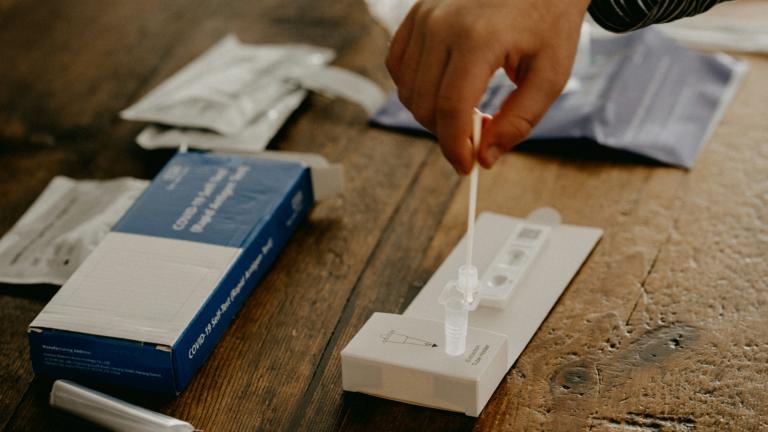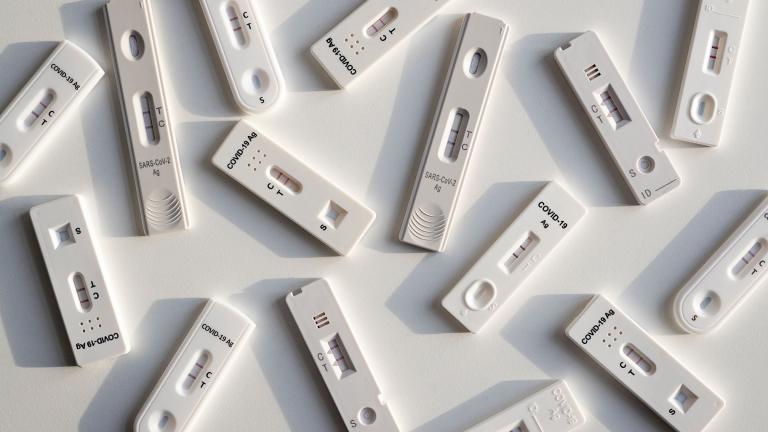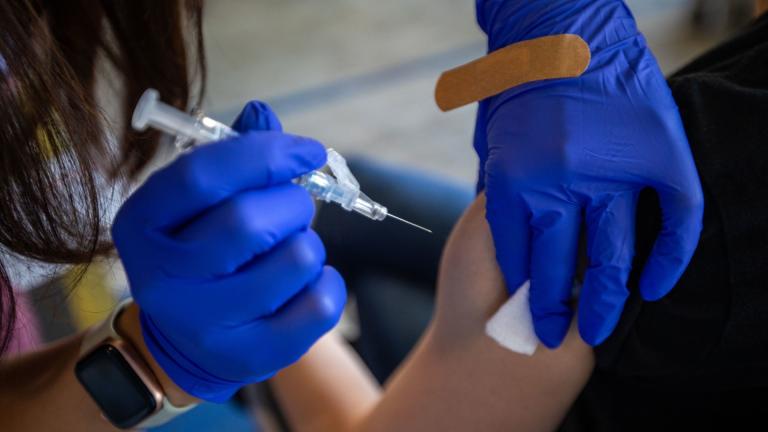As the delta variant continues to drive a spike in COVID-19 cases, two reports in the last week outline the challenges of tracking so-called breakthrough COVID-19 cases in fully vaccinated people.
Both Politico and ProPublica report that the Centers for Disease Control and Prevention decided in May to stop tracking all breakthrough cases, which it had originally intended to do. Instead, the agency is only gathering data on the most severe cases that lead to hospitalizations or deaths.
“Health departments already had a full-time job with all the illnesses they were following and dealing with, and then came COVID right on top of it,” said Dr. Mark Dworkin, professor and associate director of epidemiology at the UIC School of Public Health. “It makes sense to me that something would be tailored or targeted or limited in this way. It’s not ideal, but in order to do ideal you need to have huge amounts of resources – not just financial, but personnel resources. And you need to have them distributed throughout the country in health departments. That’s just not realistic even if it’s not what we want and/or ideally need.”
Dworkin, who previously worked for the CDC in Atlanta and served as the Illinois Public Health Department’s state epidemiologist, says local and state health departments and the CDC are regularly tracking dozens of diseases – everything from foodborne illnesses like salmonella and botulism to things like HIV and tuberculosis. Much of the reporting is electronic and automatic, coming after labs or hospitals run a test.
“Some of these systems have overlapping priorities. Let’s say HIV/AIDS and tuberculosis – it’s not unusual that some people who have tuberculosis also have HIV. These systems, ideally, would be talking to each other on a regular basis. But historically, systems like these have needed to have extra efforts in order to communicate with each other,” Dworkin said.
In addition to some public health systems not connecting, Dworkin says the length and severity of the coronavirus pandemic has created an additional strain. While not tracking all breakthrough COVID-19 cases leaves gaps in the CDC’s knowledge about how the vaccines are working, Dworkin says any data that can be gathered on breakthroughs is useful.
“They’re showing us who’s getting COVID despite having been vaccinated, and that’s really important because it gives us a sense of how these vaccines work in real-world, day-to-day situations with all the variables of behavior that occur,” Dworkin said. “Breakthrough infections are expected … it’s not preventing everybody from not getting COVID, but it is preventing a very large number of people from not getting hospitalized if they get COVID and it’s doing a terrific job at preventing deaths if you get COVID.”
Note: This story will be updated with video.








